Partners
28 institutes in 7 European countries and New Zealand participate in the PEN project:
1. University College Cork (CHDR), Cork, Ireland
2. Medical University of Silesia in Katowice (SILVeR), Katowice, Poland
3. University College Dublin (UCD-PH), Dublin, Ireland
4. Vrije Universiteit (VU-P&P), Amsterdam, the Netherlands
5. Amsterdam University Medical Center (Amsterdam UMC), Amsterdam, the Netherlands
6. Erasmus Medical Center Rotterdam (SocialEpiEMCR), Rotterdam, the Netherlands
7. Oslo Metropolitan University (OsloMet), Oslo, Norway
8. University of Bologna (UNIBO), Bologna, Italy
9. Academic Medical Center, University of Amsterdam (PHP-DP), Amsterdam, the Netherlands
10. Ludwig-Maximilians-Universität München (EBPH-LMU), Munich, Germany
11. Helmholtz Zentrum München (T-HMGU), Munich, Germany
12. Gdansk University of Technlogy (GUT), Gdansk, Poland
13. Grenoble Applied Economics Laboratory, French National Institute of Agricultural Research (GAEL- INRA), Grenoble, France
14. SWPS University of Social Sciences and Humanities (SWPS), Warsaw, Poland
15. Poznan University of Medical Sciences (PUMS), Poznan, Poland
16. German Cancer Research Center (DKFZ), Heidelberg, Germany
17. Università Cattolica del Sacro Cuore (UCSC), Milan, Italy
18. University of Limerick (UL), Limerick, Ireland
19. Medical Center - University of Freiburg (IfEM), Freiburg, Germany
20. Friedrich‐Alexander University, Institute of Sport Science and Sport (FAU-ISS), Erlangen, Germany
21. University of Oslo, Institute of Basic Medical Sciences (UiO-PHN), Oslo, Norway
22. University of Ulm, Division of Sport and Rehabilitation Medicine (UUlm), Ulm, Germany
23. Robert Koch Institute (RKI), Berlin, Germany
24. Johannes Gutenberg University Mainz (JGU), Mainz, Germany
25. Leibniz Institute for Prevention Research and Epidemiology (BIPS), Bremen, Germany
26. Alimentation et Sciences Sociales (INRA ALISS), Ivry-Sur-Seine, France
27. Faculty of Geosciences, Utrecht University (HUL), Utrecht, the Netherlands
28. University of Auckland (UOA), Auckland, New Zealand
1. University College Cork (CHDR), Cork, Ireland
(PEN-008)
University College Cork
School of Public Health
Western Rd, 4th Floor, Western Gateway Building
Cork, Ireland
https://www.ucc.ie/en/publichealth/
Our research
PEN-008 will focus its resources on Work Package 1. Dr Janas Harrington is the Work Package lead and is committed to successfully delivering WP1 outputs. Janas will specifically co-ordinate the implementation of Food-EPI across five Policy Evaluation Network (PEN) countries and will collaborate with PEN-080 to deliver Food-EPI Europe. Furthermore, PEN-008 has committed to conducting a Food-EPI audit in Ireland and contributing to developing Physical Activity (PA) – EPI. Ireland will be one of few countries to deliver both Food-EPI and PA-EPI. Dr Harrington will chair WP 1 meetings, ensure open communication between WP 1 partners, CT and other work packages. Moreover, she will liaise with the PEN CT and PEN partners to organise training and dissemination workshops. PEN-008 has committed to contributing in-kind resources leveraged on existing work.
Our PEN team
Our research group has an exemplary track record in the study of obesity and its determinants. Dr Harrington is a Senior Lecturer in Public Health Nutrition with a track record in research focusing on determinants of dietary patterns. Cliona Twohig is working as a Research Assistant on WP1. Her work if focussed on the analysis write up and dissemination of the Irish Food EPI. Prof Perry, Head of the School of Public Health, University College Cork, is a member of the Special Advisory Group on Obesity (SAGO) which reports directly to the Minister of Health and Diet Research (CHDR). The CHDR has had a significant policy focused research agenda over the past decade with policy relevant outputs on the prevention and management of obesity and cardiovascular disease. Prof Balanda is an Adjunct Professor with the School of Public Health and Director of Research and Information at the Institute of Public Health in Ireland which is the leading centre for public health policy evaluation in Ireland. He has extensive experience in health surveillance including estimation and forecasting of the prevalence of chronic diseases, the evaluation of complex public health programmes and knowledge mobilisation. Prof Rutter is an Adjunct Professor with the School of Public Health and Chair of the CHDR Scientific Advisory Group. He leads international work on complex systems approaches to the formulation and evaluation of policy.





2. Medical University of Silesia in Katowice (SILVeR), Katowice, Poland
Medical University of Silesia in Katowice
Department of Health Policy, School of Public Health
Poniatowskiego 15
40-055 Katowice, Poland
http://mus.sum.edu.pl
Our research
The School of Public Health in Bytom was established in 2002 as one of the schools of the Medical University of Silesia. Our school currently provides opportunities to study public health, dietetics and health risk management at the bachelor’s and master’s levels. We also offer PhD studies, as well as we have the right to confer habilitation degree in health sciences. In the PEN project School’s Department of Health Policy and Department of Nutrition are involved.
Our PEN team
Our main fields of scientific interests are: community-based health promotion, Health systems and health reforms in transition countries, decision-making processes in health policy and politics. Department of Nutrition is involved in research on assessment of the diet of various population groups, assessment of the effectiveness of nutritional education and nutritional knowledge of various population groups. We also do research on the effectiveness of social campaigns used to promote the principles of healthy diet, and development and assessment of public policies related to nutrition, and other aspects of health policy. In PEN project we are involved in Work Packages 1, 4 and 6.
Members of our team are: Dr Piotr Romaniuk (Principal Investigator), Professor Elzbieta Grochowska-Niedworok, Krzysztof Kaczmarek and Katarzyna Brukalo.


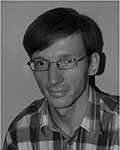

3. University College Dublin (UCD-PH), Dublin, Ireland
(PEN-018)
University College Dublin
School of Public Health, Physiotherapy and Sports Science, Woodview House
Belfield
D04, Dublin, Ireland
http://www.ucd.ie/phpps/
Our research
University College Dublin is the largest university in Ireland with a commitment to achieving excellence in research currently aligned within six major themes: Health, Agri-food, Environment, Culture, Economy & Society, ICT & Energy.
Research hubs at UCD School of Public Health include epidemiology, food & health, sport & exercise science, and economics & social policy. Within PEN we are centrally involved in WP2 Monitoring & Surveillance. We will also support WP1 in the development of Food-EPI.
Our PEN team
Dr Celine Murrin is co-lead of WP2, she has a PhD in Public Health Nutrition and is a lecturer in the UCD School of Public Health.
Her research has focused on the area of child obesity with an interest in the socio-ecological determinants of dietary behaviours through the life course. Celine has been a co-investigator of the WHO Childhood Obesity Surveillance Initiative (COSI) in Ireland since 2008 and was also a partner on the EU Joint Programming Initiative on Determinants of Diet and Physical Activity (DEDIPAC).
Isobel Stanley is a research assistant on the PEN project. She has a background in nutrition and global health and experience in national and international public health research.
Prof Clare Corish is a dietitian who has conducted work on several projects including the JPI Malnutrition in the Elderly Knowledge Hub and a large national study which looked at the impact of shift work on diet and lifestyle.
Dr James Matthews is a Sports Psychologist in the UCD Institute of Sport and Health and has access to several large datasets including the Young Hearts project and the Student Activity and Sport Study Ireland (SASSI) investigates sport and physical activity engagement in third-level colleges.




4. Vrije Universiteit (VU-P&P), Amsterdam, the Netherlands
Vrije Universiteit, Amsterdam
Beta Faculteit, Department of Health Sciences
De Boelelaan 1085
1081 HV, Amsterdam, the Netherlands
https://science.vu.nl/en/research/health-sciences/
Our research
The Health Sciences department aims to integrate high quality, interdisciplinary research, education and valorisation activities to innovate, improve and maintain health and health care.
In PEN we are in particular involved in WP6, in the case study of the sugar-sweetened beverages tax (SSB tax). We will determine political and social acceptability of a SSB tax (literature study), implementation aspects of a SSB tax and the effectiveness of different SSB tax schemes with the Virtual Supermarket. We also participate in WP3 and WP4.
Our PEN team
Our research group conducts research into the development, evaluation and implementation of interventions and policies to promote health and prevent overweight/obesity. Within the field of policy evaluation, we have extensive expertise in the evaluation of policies targeted at improving nutrition behaviour. E.g. we studied the effect of pricing policies (subsidy on fruit & vegetables and food taxes such as a SSB tax). We developed an innovative research tool to study pricing policies: the Virtual Supermarket. Moreover in collaboration with the Netherlands Nutrition Center we developed the Canteen Scan, a tool that provides insight into the extent to which canteens meet the Dutch Guidelines for Healthier Canteens. We also conducted various studies on how to evaluate an integrated community wide intervention approach targeted at the prevention of overweight and obesity.

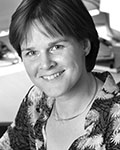



5. Amsterdam University Medical Center (Amsterdam UMC), Amsterdam, the Netherlands
(PEN-026)
Amsterdam UMC, Amsterdam
Department of Epidemiology and Biostatistics (Dr. Lakerveld)
Department of Public and Occupational Health (Dr. van der Ploeg)
De Boelelaan 1089a
1081 HV, Amsterdam, the Netherlands
http://www.amsterdamumc.nl
Our research
Amsterdam UMC’s core objectives are to perform patient care in close collaboration with scientific research, academic teaching and post-academic training. Research within five focus areas is organised in five research institutes. In PEN we especially support the work in WP1, where we will be involved in adapting and implementing the Food-EPI in the Netherlands, and help to develop and pilot a PA-EPI. Next to that we will provide expertise to WP2’s efforts regarding surveillance, and Dr. Lakerveld will act as vice-coordinator of the network.
Our PEN team
Our expertise covers the measurement and analysis of determinants of dietary, physical activity and sedentary behaviours, with a focus on individual level determinants as well as contextual or ‘environmental’ determinants of these health behaviours. Such information is crucial to inform interventions and policies to promote more healthful behaviours. Our research team is also strongly involved in studies evaluating such interventions and policies.
Members of our team are: Dr Jeroen Lakerveld (Principal Investigator), Dr Hidde van der Ploeg and Dr Nicole den Braver.



6. Erasmus Medical Center Rotterdam (SocialEpiEMCR), Rotterdam, the Netherlands
(PEN-028)
Erasmus MC Rotterdam
Department of Public Health
PO Box 3000
3000 CA, Rotterdam, the Netherlands
https://www.erasmusmc.nl/public-health/
Our research
The mission of the Department of Public Health of Erasmus University Medical Center is to conduct eminent research aimed at supporting evidence-based practice. Our expertise is on the determinants and primary prevention in order to better understand the social and physical determinants of population health and develop effective primary preventive. The department has an international reputation for its research in social epidemiology.
Our PEN team
Frank J. van Lenthe is professor of Social Epidemiology at the Department of Public Health at the Erasmus Medical Center Rotterdam, and professor of Spatial Diversity and Inequality in Urban Health at Utrecht University. He leads work package 5, aimed at incorporating an equity and systems perspective in the evaluation of health behaviour related policies. His research focusses on the explanation and reduction of individual and area-based socioeconomic inequalities in health and health behaviour. Frank published 215 international peer reviewed papers. For many years, he served as the editor-in-chief of the International Journal of Behavioural Nutrition and Physical Activity.

7. Oslo Metropolitan University (OsloMet), Oslo, Norway
Oslo Metropolitan University (OsloMet)
P.O.Box 4 St. Olavs plass
0130 Oslo, Norway
https://www.oslomet.no/en/english
Our research
The OsloMet Food and Nutrition Policy group includes researchers from two institutes at the Oslo Metropolitan University: Consumption Research Norway (SIFO) and Public Health Nutrition at the Department of Nursing and Health Promotion (PHN). The main involvement of OsloMet in PEN is in
WP1 for adapting, testing and implementing the Food-EPI in Norway, and in WP5 for ensuring the equity and diversity perspective of policies.
Our PEN team
The OsloMet Food and Nutrition Policy group brings together researchers in nutrition, public healthy nutrition, sociology and anthropology with complementary competencies in food and nutrition policy analysis, food and human rights, food consumption, dietary habits and nutrition of vulnerable population groups (lower SES and ethnic minority populations), maternal/ child nutrition, and food culture.






8. University of Bologna (UNIBO), Bologna, Italy
Alma Mater Studiorum – Università di Bologna
Department of Statistical Sciences
Via Belle Arti 41
40126 Bologna, Italy
http://www.stat.unibo.it/en
Our research
At the University of Bologna, we have one of the largest departments of Statistical Sciences in the world. The expertise of the faculty members covers methodological and applied statistics, economic statistics, applied economics, among others. In PEN, UNIBO will take the leadership of WP3 on methods for impact evaluation, and will also lead tasks on the development of recommendations for robust and transparent policy evaluation, and experimental and quasi-experimental methods to estimate policy impacts.
Our PEN team
The UNIBO team has a history of excellent research in the area of food policy evaluation, their expertise focusing on statistical methodologies for ex-post policy impact evaluation. The group leader is the co-Editor-in-chief of the international journal Food Policy, and a consultant to FAO and EC. The research group has actively participated to the 7FP Eatwell project aimed to apply and develop methods for the evaluation of policies targeted at the promotion of healthier diets. Evaluations carried out by the UNIBO research group include the evaluations of the UK 5-a-day and salt reduction campaigns, the French ban of vending machines from secondary schools, and the 2012 French Soda Tax.
Members of our team are: Professor Mario Mazzocchi, Dr Sara Capacci, Dr Beatrice Biondi, Professor Maria Ferrante and Pinuccia Calia.




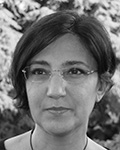
9. Academic Medical Center, University of Amsterdam (PHP-DP), Amsterdam, the Netherlands
University of Amsterdam
Dept. of Public Health, Academic Medical Center
Meibergdreef 15
1105 AZ, Amsterdam, the Netherlands
http://www.amsterdamresearch.org/web/public-health/
Our research
Within the field of policy evaluation, our group focuses on measures that aim to improve the health of disadvantaged populations, particularly lower socioeconomic and ethnic minority populations. Our group will in particular be involved in efforts to add an equity focus to the activities of the PEN project, by systematically exploring how policies and interventions could target these groups and what this would imply for the methodology of evaluation studies, using a systems approach. These activities are concentrated in WP5.
Our PEN team
Karien Stronks is professor of Public Health at the Amsterdam UMC, location AMC, department of Public Health. Her research relates to health inequalities in Europe, with special interest in strategies to effectively combat socioeconomic inequalities in health in real-world situations, and ethnic inequalities in cardiovascular health. Dr Alexia Sawyer is a postdoctoral research in the department of Public Health, Amsterdam UMC, location AMC. Drawing on a background in Behavioural Science, her research focuses on determinants of obesity-related health behaviours, effective methods of health promotion in lower socioeconomic populations and the application of system-based perspectives to gain new insights in these areas.


10. Ludwig-Maximilians-Universität München (EBPH-LMU), Munich, Germany
Ludwig-Maximilians-Universität München
Pettenkofer School of Public Health
Institute for Medical Information Processing, Biometry and Epidemiology (IBE)
Research Group Evidence-Based Public Health (EBPH-LMU)
Marchioninistr. 17
81377 Munich, Germany
https://www.en.ibe.med.uni-muenchen.de/research/evidence-based-public-health1/
Our research
Our research group undertakes a range of conceptual, methodological and applied research from a complexity perspective. The focus is on the evaluation and adaptation of various public health interventions in Germany, Europe and the world, often with direct engagement of policy-and-practice representatives. In PEN we apply the INFORMAS Food Environment Policy Index (Food-EPI) in Germany (WP1) and contribute to the advancement of quasi-experimental methods and evidence-to-decision processes (WP3).
Our PEN team
Dr Peter von Philipsborn, a medical doctor and political scientist, leads our activities in PEN WP1. With a passion for obesity prevention his research activities encompass systematic reviews as well as policy analysis.
Prof Eva Rehfuess, a public health methodologist, coordinates our contributions to PEN WP3. Her research focus is evidence-informed public health, covering primary research, evidence synthesis and knowledge translation from a complexity perspective.
Jan Stratil, a medical doctor and geographer, contributes to PEN WP1. His research activities focus on the determinants of obesity and public health methods development, notably the WHO-INTEGRATE framework.
Karin Geffert, a medical doctor with a post-graduate training in public health, contributes to PEN WP1. Her research activities focus on policy analysis and implementation research on non-communicable diseases.
Johannes Donaubauer is a medical student and development economist. He is interested in the role of the private sector on public health policy formulation, contributing to WP1.




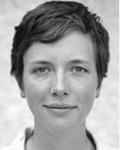
11. Helmholtz Zentrum München (T-HMGU), Munich, Germany
Helmholtz Zentrum München – German Research Center for Environmental Health
Institute of Health Economics and Health Care Management (IGM)
Ingolstädter Landstraße 1
85764 Neuherberg, Germany
https://www.helmholtz-muenchen.de/en/igm/index.html
Our research
The Institute of Health Economics and Health Care Management (IGM) examines approaches to improving the efficiency of health care and public health strategies. In PEN, we will contribute our health economic expertise to determine the methodological steps required to apply and adapt decision analytic models for impact evaluation of policies promoting a healthy diet and physical activity.
Our PEN team
Our team is very interdisciplinary and consists of members from the field of economics, medicine, epidemiology and public health. The core methodological skills of the group include the evaluation of trials and natural experiments, the analysis of observational cohort studies and claims data and the development, adaption and application of decision analytic models.
Members of our team are: Dr Michael Laxy (Prinzipal investigator), Karl Emmert-Fees, Dr Lars Schwettmann and Dr Renée Stark.




12. Gdansk University of Technlogy (GUT), Gdansk, Poland
Gdansk University of Technology
Faculty of Civil and Environmental Engineering
Department of Highway and Transportation Engineering
Narutowicza 11
80-233 Gdansk, Poland
https://wilis.pg.edu.pl/en
Our research
Department of Highway and Transportation Engineering conducts research in the field of transport, including transport planning, urban logistics, transport behavior, modelling and forecasting of road traffic, transport safety assessment, economic efficiency of road investments, concepts and projects for road traffic management. The department provides expertise for the Polish Infrastructure Ministry, the World Bank, as well as national and local authorities. It coordinates European and national research projects within the field of transport and offers first and second degree studies both in the field of transport and highway engineering.
Our PEN team
Our research team consists of six people. Prof Joanna Żukowska with her transportation background and expertise is a leader of the team. She is the principal investigator and co-chair of WP1. Kazimierz Jamroz as a professor and head of the Department of Highway and Transportation Engineering holds the position of a scientific supervisor of the project. He is responsible for ensuring high quality of planned tasks and reports. Romanika Okraszewska leads research on the SUMP case study which is an important part of WP6 activities. Aleksandra Romanowska is responsible for the research developed within WP3, and Lech Michalski supports all the research activities with his high level expertise and experience. Maciej Sawicki deals with administration and finances of the project.





13. Grenoble Applied Economics Laboratory, French National Institute of Agricultural Research (GAEL- INRA), Grenoble, France
Grenoble Applied Economics Laboratory
French National Institute of Agricultural Research
1241, rue des résidences
38400 Saint Martin d’Hères, France
https://gael.univ-grenoble-alpes.fr
14. SWPS University of Social Sciences and Humanities (SWPS), Warsaw, Poland
SWPS University of Social Sciences and Humanities
CARE-BEH Center for Applied Research on Health Behavior and Health
Wroclaw Department of Psychology
Chodakowska 19/31
03815 Warsaw, Poland
https://english.swps.pl/
Our research
SWPS University is a non-public research university that currently runs undergraduate, graduate and doctoral programs for almost 15 000 students in its five campuses. The Ministry of Science and Higher Education in Poland ranked SWPS Department in Wroclaw as #1 among all social sciences research and higher education institutions in Poland in terms of the scientific output. SWPS Team is involved in four PEN workpackages: WP 1, 5, 6, and co-leading WP4 (policy implementation).
Our PEN team
Prof Aleksandra Luszczynska, PhD, Anna Banik, PhD, and Karolina Lobczowska MA, are health psychologists investigating determinants of health behaviour change, including conditions of successful implementation of behaviour change in policies and intervention promoting physical activity and healthy diet. The research programs conducted by our team has been funded by national and international agencies (e.g., TEMPEST project [7th EU Framework], Co-create [Horizon 2020], DEDIPAC [JPI Healthy Diet for Healthy Life]). For CV and scientific output of the team leader, Aleksandra Luszczynska see http://goo.gl/eQLGi9 or http://www.researcherid.com/rid/F-3692-2014 .



15. Poznan University of Medical Sciences (PUMS), Poznan, Poland
Poznan University of Medical Sciences
Laboratory for Geriatric Medicine, Department of Palliative Care
u. Fredry 10
61-701 Poznan, Poland
http://pums.ump.edu.pl/
Our research
PUMS is one of the best and largest medical universities in Poland, with 100 years of academic experience. It is well equipped for research in basic medical sciences, clinical investigations, diagnosis and treatment. To this date, the University has entered into more than 30 long-term partnership agreements with medical universities and research centres worldwide.
The team of PUMS main expertise area is geriatric medicine and gerontology, they thus present in PEN the perspective of older individuals.
Our PEN team
• Prof. K. Wieczorowska-Tobis, MD, PhD – geriatrician, experienced in policy evaluation throughout the process of their creation, both at the global and local level,
• Prof. A. Suwalska, MD, PhD – psychiatrist, experienced in project evaluation within various European initiatives,
• S. Kropinska, PhD – expert in medical sciences.




16. German Cancer Research Center (DKFZ), Heidelberg, Germany
German Cancer Research Center
Division of Clinical Epidemiology and Aging Research – C070
Im Neuenheimer Feld 280
69120 Heidelberg, Germany
https://www.dkfz.de/en/klinepi/
17. Università Cattolica del Sacro Cuore (UCSC), Milan, Italy
Università Cattolica del Sacro Cuore
Alta Scuola di Management ed Economia agroalimentare (SMEA)
Via Milano 24
26100 Milano, Italy
https://dipartimenti.unicatt.it/economia-agroalimentare-home
Our research
The research group has been working actively on agricultural and food policy evaluation, participating to many projects on these issues (among them, the FP7 SUSDIET, contributing to the policy evaluation of nutritional and sustainable interventions, and analysing the role of information policies on diets using data from real experiments; the FP7 TRANSFOP, on transmission of signals along the food supply chain; the FP7 FADNTOOL, contributing to a tool for simulating the impact of agricultural policies). The group has also participated to the Intrepid consortium in the DEDIPAC Knowledge Hub, analysing the determinants of healthy food choices in Italy. The group has an expertise on micro-econometric modelling (micro-data from official survey and/or scanner data), and on the experimental approach to policy evaluation; further, it has an expertise on both policies directly affecting dietary choices and policies (supply-side policies) that indirectly may impact health behaviour related to food choices.
The team is based at the Department of Agricultural and Food Economics at UCSC. Daniele Moro is Professor in Agricultural Economics and leads the group. His research interests focus on food demand and price analyses, agricultural policy and microeconometrics. Paolo Sckokai is full Professor and Chair of the Department. He has worked extensively in the evaluation of agricultural food and environmental policies, with a special focus on econometric models. He has participated in several international projects involving policy evaluation issues. Dr. Elena Castellari contributes to WP3 and WP6. Her expertise is mainly in the field of consumer behavior and the assessment of food policies. In her research she has used econometric modelling and quasi-experimental methods for public policies impact evaluation. Giulia Tiboldo is a Post Doc reasearcher, she contributes to WP3 and WP6. Her expertise is mainly in the field of consumer behavior and the assessment of food policies.




18. University of Limerick (UL), Limerick, Ireland
University of Limerick
Department of Physical Education and Sport Sciences
Faculty of Education and Health Sciences
Sreelane
V94 Limerick, Ireland
https://www.ul.ie/pess/
Our research
Prof. Woods is the UL lead and the Deputy Coordinator of the PEN project. The work of PEN 053 focuses mainly on WP1 and WP2.
In WP1, PEN 053 are leading on the development of a Physical Activity Policy Environment Index (PA EPI), this builds on the work of the European Food EPI also under creation within WP1. In WP2, the identification of indicators useful for effective policy evaluation is a primary objective; PEN 053 are contributing to this programme of work.
Our PEN team
PEN 053 members are part of the ‘Physical Activity for Health’ research cluster in the Health Research Institute (https://www.ul.ie/hri/) at the University of Limerick. PAfH is a multidisciplinary research group of physiologists, sports and exercise scientists, physiotherapists and health, sports and exercise psychologists set up to meet global and local policy requirements in research the area of physical activity for health. A key strength is our collaborations with international experts in the area, and with stakeholders in community, policy and healthcare organisations. We have a track record of successful collaborations amongst our members that have led to co-supervised PhD graduations, funded projects and impact on health and social care. The group has four complementary and inter-linking focus areas; 1) Measurement, surveillance and Determinants of PA, 2) Biomedicine of PA, 3) PA and Exercise as Medicine, and 4) Policy Impact and Implementation of effective interventions. Our research is cross-sectoral in public health, community, healthcare, sports and school settings, and across the lifespan, from children to older people.




19. Medical Center - University of Freiburg (IfEM), Freiburg, Germany
Medical Center – University of Freiburg
Institute for Evidence in Medicine (IfEM)
Breisacher Str. 153
79110 Freiburg, Germany
https://www.uniklinik-freiburg.de/institut-fuer-evidenz-in-der-medizin.html
Our research
The Institute for Evidence in Medicine (IfEM) of the Medical Faculty of the University of Freiburg was founded in January 2018. In PEN, IfEM is leading tasks regarding the Grading of Recommendations Assessment, Development and Evaluation (GRADE) and Evaluation to Decisions (EtD) approach, which will serve as a framework for assessing the certainty of evidence when evaluating policies, and support the process for developing recommendations.
Our PEN team
Our research group in PEN is comprised of Professor Dr Joerg J. Meerpohl (leader) and Dr Lukas Schwingshackl (researcher) and Jasmin Zähringer. Joerg Meerpohl is director of the IfEM as well as director of the GRADE Centre Freiburg. He also heads Cochrane Germany. He has published many Cochrane and non-Cochrane systematic reviews on various clinical and public health topics. He is an appointed member of the WHO Nutrition Guidance Expert Advisory Group (NUGAG), and has a strong interest in methodological research. Lukas Schwingshackl is a researcher at IfEM; he is a nutritional scientist and has strong methodological expertise in systematic reviews and network meta-analysis most of them with a focus on nutrition. Jasmin Zähringer is a nutritional scientist with special interest in scoping and systematic reviews, and in knowledge transfer.



20. Friedrich‐Alexander University, Institute of Sport Science and Sport (FAU-ISS), Erlangen, Germany
Friedrich-Alexander-Universität Erlangen-Nürnberg, Germany
Institut für Sportwissenschaft und Sport
Gebbertstrasse 123b
91058 Erlangen, Germany
https://www.sport.fau.de/
Our research
The Department of Sport Science and Sport at FAU has been operating for more than 15 years with a visionary agenda focusing on “Physical Activity and Public Health.” It is among the top German organisations in its field, both in terms of research performance and acquisition of third-party funds. The Department was designated as an official WHO Collaborating Centre on Physical Activity and Public Health in 2014. As part of the PEN project, it will complete the WHO HEPA Policy Audit Tool for Germany.
Our PEN team
Our PEN team consists of Dr. Peter Gelius and PD Dr. Karim Abu-Omar – who are both Co-Directors of the WHO Collaborating Centre for Physical Activity and Public Health at FAU – and Sven Messing. Their research interests range from health promotion policy development and implementation to scaling up of public health interventions and physical activity surveillance. While Karim Abu-Omar and Sven Messing were involved in the development and implementation of the German National Physical Activity Recommendations, Peter Gelius is currently leading a large-scale project on the development of physical activity interventions in different settings using a transdisciplinary perspective.


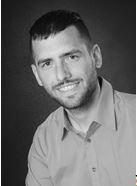
21. University of Oslo, Institute of Basic Medical Sciences (UiO-PHN), Oslo, Norway
University of Oslo, Institute of Basic Medical Sciences
Department of Nutrition
Sognsvannsveien 9
0316 Oslo, Norway
https://www.med.uio.no/imb/english/about/organization/departments/nutrition/
Our research
The Public Health Nutrition group has a long-standing tradition in development, implementation and evaluation of school-based interventions and policies both within Norway and across Europe. Professor Lien will be task leader for the case studies on physical activity and nutrition policies in schools and kindergartens in WP6, and will especially lead a case on the European School Fruit Scheme. The team will also be involved in surveillance (WP2), effect (WP3) and implementation (WP4).
Our PEN team
Professor Lien has experience from analytical determinant studies, intervention and implementation studies of dietary behaviors and physical activity – mostly in schools. She is currently entering into policy in a system science perspective. Professor Frost-Andersen has long term experience in dietary assessment methods and surveillance, but has also been involved in several of the school-based interventions. Professor II Klepp has been working on school-based interventions, marketing to children, taxation and polices both as an academic and as an employee at the Norwegian Directorate of Health. Post Doc Meshkovska will be responsible for the case study on impact and implementation evaluation of the EU School Fruit and Vegetable Scheme in WP6. Mahshid Zolfaghari is developing a qualitative system dynamics model of the EU School Fruit and Vegetable Scheme.





22. University of Ulm, Division of Sport and Rehabilitation Medicine (UUlm), Ulm, Germany
Ulm University
Division of Sports- and Rehabilitation Medicine
Leimgrubenweg 14
89075 Ulm, Germany
https://www.uniklinik-ulm.de/innere-medizin-ii/sonstige/sektion-sport-und-rehabilitationsmedizin.html
23. Robert Koch Institute (RKI), Berlin, Germany
Robert Koch Institute
Dept. of Epidemiology and Health Monitoring
General-Pape Strasse 62-66
12101 Berlin, Germany
https://www.rki.de/EN/Content/Institute/DepartmentsUnits/EpidemHealthReprting/Div27/Div27_node.html
Our research
We are the public health institute in Germany. Our department is responsible for the Federal Health Monitoring System and regularly conducts national health examination and interview surveys covering the general population of all ages. Our Unit for Health Behaviour focuses on the monitoring and epidemiology of health behaviours including dietary behaviour and physical activity. We are involved in the European Health Interview Survey which aims to provide harmonized health information for Europe.
Our PEN team
Dr Gert Mensink is a nutritional epidemiologist and is a deputy head of the Unit. Gianni Varnaccia is a sports scientist and public health nutritionist. Dr Julika Loss is a physician and medical sociologist and is head of the Unit. She has a focus on prevention, mainly the implementation and evaluation of interventions that promote physical activity and healthy diets. Dr Anja Schienkiewitz is an epidemiologist and has long expertise in the field of public health, nutritional science and obesity research. We have experience in population health monitoring and indicator based health information systems. In the project we will consult with monitoring and surveillance experts on prioritization of indicator dimensions to monitor lifestyle intervention policies aimed at reducing physical inactivity, sedentary behaviour and unhealthy dietary behaviour. We will develop an agreed set of indicators, measured using harmonised instruments that can be integrated within existing monitoring and surveillance systems.




24. Johannes Gutenberg University Mainz (JGU), Germany
Johannes Gutenberg University Mainz
Health Psychology
Binger Sr. 14-16
55099 Mainz, Germany
https://www.gesundheit.psychologie.uni-mainz.de/
Our research
JGU Health Psychology lab’s main research themes revolve around behavioural and psychosocial factors and processes in health and chronic (metabolic) disease, with a particular focus on real-life intensive longitudinal methodologies (Ambulatory Assessment).Within the PEN Project, JGU will provide contributions in the domains of behavioural assessment methodologies, citizen/ patient reported outcome research and qualitative focus group approaches to WP3 and WP4. In addition, JGU contributes expertise to the research into inequalities and difficult-to-reach subpopulations to WP5.
Our PEN team
The people involved in our PEN team are Professor Thomas Kubiak, Dr Mario Wenzel, and Marie Scheidmeir. Our main areas of expertise lie within the behavioural sciences and psychology, behavioural data capture and ambulatory monitoring methodologies. Specifically, we focus on innovative real-time strategies in healthy individuals and people with or at risk for chronic diseases (lifestyle factors, obesity, diabetes) with a particular focus on advanced data modelling approaches. Furthermore, we contribute a strong background in qualitative research to connect to the experiences, attitudes, and wishes of patients, citizens and stakeholders.



25. Leibniz Institute for Prevention Research and Epidemiology (BIPS), Bremen, Germany
Leibniz Institute for Prevention Research and Epidemiology – BIPS
Achterstraße 30
28359 Bremen, Germany
https://www.bips-institut.de/
Our research
BIPS (a) develops effective strategies for the prevention of chronic, non-communicable diseases, (b) evaluates intervention effects with reference to national and European health policy guidelines for health behaviour, physiological parameters and biological markers, and (c) develops and evaluates methods for the assessment of risk factors and health outcomes for research and surveillance purposes to support a healthy life-course.
Our PEN team
Wolfgang Ahrens is professor of epidemiological methods, his research focuses on epidemiological methods with particular interest on the aetiology and primary prevention of non-communicable diseases. Stefanie Do is a research assistant on the PEN project and has a background in social/behavioral epidemiology and global health with a special interest in life-course approaches and population health monitoring. Dr Sarah Forberger is a political scientist, her research focuses on health policy research and soft law regulations with a special interest in physical activity and substance use. Dr Antje Hebestreit is a nutrition scientist with special interest on the role of dietary intake and nutrition behaviour in association with non-communicable diseases. Lucia Reisch is full professor for consumer behaviour and consumer policy, her main research areas are sustainable consumption, intercultural consumer behaviour and behavioral public policy. Maike Wolters is a nutrition scientist, her research focuses on overweight/ obesity and associated metabolic disturbances in children and adolescents as well as their determinants. Professor Hajo Zeeb is an epidemiologist with special interest in social and environmental epidemiology and evidence-based public health.
See also the PEN Project Office






26. Alimentation et Sciences Sociales (INRA ALISS), Ivry-Sur-Seine, France
Alimentation et Sciences Sociales
65 bd de Brandebourg
94200 Ivry-Sur-Seine, France
https://www6.versailles-grignon.inra.fr/aliss/
(PEN partner until January 2021)
Our research
INRA ALISS (Social Sciences and Food) is a research unit of the French National Agricultural Research Institute (INRA). It produces knowledge aiming at understanding the behaviours and the strategies of the food system stakeholders and to contribute to the development and the assessment of public policies. INRA ALISS will be involved in the development of experimental and quasi-experimental methods to estimate policy impacts (Task 3.1) and in the statistical modelling and simulation of the epidemiological impact of policies (Task 3.3).
Our PEN team
Dr Allais is an economist, and the director of the Research Unit INRA ALISS. He has been involved in many European and national projects dealing with food policy evaluation. He was the work package leader “policy evaluation for healthy life style” in the JPI DEDIPAC network.

27. Faculty of Geosciences, Utrecht University (HUL), Utrecht, the Netherlands
Faculty of Geosciences, Utrecht University
Department of Human Geography and Spatial Planning
Heidelberglaan 2
3584 CS Utrecht, the Netherlands
https://www.uu.nl/en/research/human-geography-and-planning
Our research
Our team members are working at two departments of the Utrecht University: the Department of Human Geography and Spatial Planning (research group Accessibility, Public Space and Health) and the Department of Interdisciplinary Social Science (research group Public Health). We collaborate in projects as part of the Utrecht University strategic themes “Future Food” and “Sustainability”. An overarching aim isto conduct high-standard research to better understand how we can design environments that encourage healthy living. We are highly experienced in the evaluation of (urban) health policy strategies, stimulating a wide range of health behaviours like active mobility, physical activity and healthy diet. We have an alliance with Dutch municipalities (e.g. Utrecht, Eindhoven) where we conduct policyevaluations in the area of health gaps and inequalities, healthy urbanisation and the food environment.
Our PEN team
Dr Maartje Poelman has a background in Public Health Nutrition and is Assistant Professor at the Department of Human Geography and Spatial Planning. Her research is focused on understanding the impact of the food environment on food choices and health, and on intervening in the food environment to promote healthier food choices. Dr Carlijn Kamphuis is Associate Professor at the Department of Interdisciplinary Social Science. Her research concentrates on socioeconomic inequalities in health and health-related behaviours (dietary behaviours, physical activity) and how the built environment, socio-cultural environment, and policy environment impact on (inequalities in) health-related behaviours. Sanne Djojosoeparto, MSc, is a PhD student at the Department of Human Geography and Spatial Planning, and mostly contributes to WP1 and WP6. She investigates to what extent policies have been implemented (in the Netherlands and at European level) that aim to create healthy food environments, and how specific policies contribute to socioeconomic inequalities in healthy food choices. Frank van Lenthe (see also partner 6. SocialEpiEMCR) is professor of Spatial Diversity and Inequality in Urban Health at the Department of Human Geography and Spatial Planning. His research focuses on understanding and reducing inequalities in population health, with a specific interest in obesity, and underlying behavioural and environmental determinants.



28. University of Auckland (UOA), Auckland, New Zealand
The University of Auckland
Private Bag 92019 Auckland
School of Population Health building 730
1142 Auckland, New Zealand
https://www.auckland.ac.nz/en.html
Our research
Our team at the School of Population Health, University of Auckland, is leading the International Network for Food and Obesity/NCDs Research, Monitoring and Action Support (INFORMAS). The aim of INFORMAS is to monitor and benchmark food environments and policies globally. Within one of the nine modules of INFORMAS (public sector module), we developed the Healthy Food Environment Policy Index (Food-EPI) to assess the extent of implementation of recommended food environment policies compared to international best practice and propose and prioritise key actions for implementation. The Food-EPI has since been implemented in 15 countries globally.
Our PEN team
Dr Vandevijvere is leading the implementation of the Healthy Food Environment Policy Index (Food-EPI) internationally as part of INFORMAS. The Food-EPI tool is going to be used in PEN in WP1 and Dr Vandevijvere’s role in the project will be to train the country teams for use and implementation of the tool and process, provide expertise and guidance for the adaptation of the Food-EPI to the European context.


